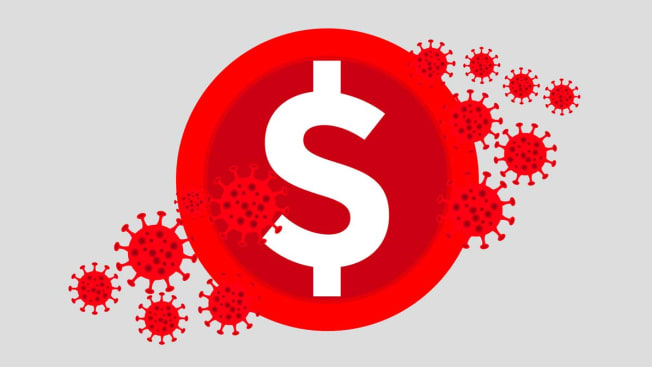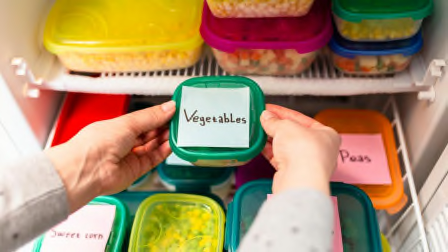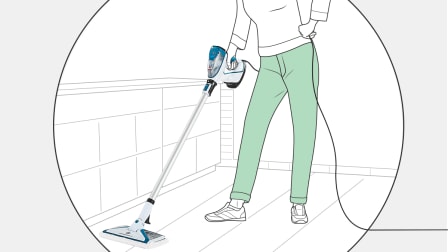How 'Free' Coronavirus Testing Has Become the New Surprise Medical Bill
COVID-19 tests should cost nothing if you have health insurance, but some are being billed thousands of dollars

After Stephanie Nickolas learned that a co-worker’s husband tested positive for COVID-19, she decided to get tested to see if she had the disease or antibodies that might reveal whether she ever had the infection.
Nickolas, 45, went to CityMD, an urgent care chain near where she lives in Brooklyn, N.Y., which she found listed as a free testing site through New York City’s government website.
Nickolas, a high school science teacher, was relieved when both tests came back negative. But about a month later, Nickolas was surprised when she got a $300 bill from CityMD. She went to her insurer’s website to look up the claim and saw that the company had already paid CityMD. When she contacted CityMD to ask about the bill, she was told it was a mistake and to ignore it.
“I was so mad when I got the bill,” says Nickolas, who is teaching summer school remotely. “The government tells everyone to get tested and has kept saying it was no cost. I did the right thing and made sure I was healthy to be out in public. I felt like CityMD was using the pandemic to make a bunch of money.”
The Cost of Getting Tested
The charges for COVID-19 testing can be substantial. While a recent analysis by KFF of the two largest hospitals in every state and Washington, D.C., found that about half of healthcare providers that posted list prices for COVID-19 tests charge $100 to $199, 19 percent charged $200 or more. Meanwhile, of the hospitals that posted prices for antibody tests, almost 60 percent of those tests cost $50 to $149 while 16 percent were $150 or more.
But in many cases, according to the KFF, that appears to just be for the test itself and doesn’t include the cost of related services that go along with testing, such as specimen collection and the office visit to get the procedure done.
All these costs are supposed to be covered by your health insurance, according to federal law, but when mistakes happen or consumers find themselves in a situation where insurance doesn’t cover the cost, they can find themselves with big medical bills, says Jeanne Pinder, founder and CEO of ClearHealthCosts, which tracks healthcare pricing around the U.S. and has helped patients untangle medical billing problems.
When ClearHealthCosts looked into the issue, it found several cases of people who received bills from urgent care centers, free-standing test sites, or hospitals that ranged from $125 to $3,000 for COVID-19 testing. In three of the four cases, the bills were resolved after ClearHealthCosts investigated, and the people didn’t have to pay for testing.
The healthcare providers and insurers ClearHealthCosts contacted cited various reasons for the incorrect billing, including providers using the wrong billing codes and a patient who lacked insurance and wasn’t guaranteed coverage under the law.
What Can Trigger a Surprise Medical Bill
There are a number of situations in which COVID-19 and antibody testing can trigger a medical bill, says Pollitz at the KFF. Here are circumstances to watch out for.
You go out of network. If you go to a doctor or hospital not in your insurance company’s network for your test, insurers are supposed to pay the full price the provider charges. But in a loophole in the law, the KFF found that if the price isn’t publicly posted and the insurer and healthcare provider can’t agree on a price for the testing, you could end up with a bill for what the insurer won’t cover. Also be aware that not all healthcare providers that offer tests take insurance. In those cases, you’ll have to pay up front, then submit the bill to your insurer to get reimbursed.
You get evaluated for COVID-19 but don’t get a test. Not everyone who goes in for a COVID-19 test will necessarily get the test. A healthcare provider might order a test for other health problems first, such as pneumonia or the flu, and if one of those is positive, a COVID-19 test might not be needed, which could leave you with a bill for the tests you did get.
Kaiser reported one case in which a woman who had COVID-19-like symptoms got a bill after going to the emergency room for a test but was charged for the visit even though the hospital didn’t have any testing kits available.
You don’t have comprehensive insurance. Medicare, Medicaid, and private insurance plans must adhere to federal laws on free coronavirus testing. But if you have short-term health insurance, which doesn’t meet regulations set by the Affordable Care Act for minimum essential coverage, federal requirements for insurance to cover COVID-19 and antibody tests don’t apply.
You don’t have any insurance. People without health insurance don’t have the same guarantee as those with coverage to get free testing, though Congress did try to address that. Under the coronavirus relief laws passed earlier this year, the government set up the Provider Relief Fund. Instead of billing you, hospitals or healthcare providers who provide testing services to the uninsured can submit claims to the fund.
But not all hospitals or doctors are aware of the fund or want to go through the paperwork hassle to apply for reimbursement, says Pinder from ClearHealthCosts. “It’s easier to bill you,” Pinder says. In that case, you should appeal the bill. (See below for advice on how to do that.)
Your employer requires a test. Federal law applies only to individual diagnostic testing–such as when you seek treatment for COVID-19-like symptoms or think you have been exposed to someone with COVID-19. But another category of testing, known as surveillance testing, which may be done to assess how prevalent the disease is in a particular area or by employers who want to screen workers returning to the office, isn’t covered under the federal law.
According to the Centers for Medicare & Medicaid Services, insurers are not required to pay for testing for general public health assessments or workplace screening for COVID-19. Employers who do require workers to get periodic testing can pay for the tests, but their health insurer plan doesn’t have to cover that cost, which can lead to confusion over who is responsible for the bill.
You get treatment for COVID-19. While the doctor visit and the test itself are covered, there are no federal laws that require health insurance companies to cover the cost of treatment related to COVID-19 health problems if you are insured. If you end up testing positive for the coronavirus and get treatment or are admitted to a hospital, you can expect to be charged for your care, and have to pay your normal deductibles and copays and, if your provider is not in your network, possibly higher out-of-network fees, too.
End Surprise Medical Bills!
How to Protect Yourself
Confirm coverage. To avoid surprise medical bills, the onus is on the patient to do advance work. Talk to your insurer to find out how your coverage works and whether it will cover the test at the healthcare provider where you plan to get tested. Then call the healthcare provider to confirm you won’t be charged.
Check government resources. Some states, such as New York and New Jersey, that were hit hard early in the pandemic this spring invested a lot of money in setting up testing sites that offer free tests regardless of whether you have insurance, Pollitz says. Check to see whether your state offers similar services.
You can look up contact information for your state department of health on the Centers for Disease Control and Prevention website. The Department of Health and Human Services as well as some states and local governments are also partnering with pharmacies and retailers, such as CVS and Walmart, to provide free testing. You can find retail sites in your state at HHS website. If you don’t have insurance and go to a place that wants you to pay out of pocket, ask the facility or healthcare provider whether it will bill the government’s Provider Relief Fund instead of you.
Appeal the bill. If you have insurance and you receive a bill that you don’t think you owe, like any surprise medical bill, don’t pay it right away, Pollitz says. It’ll be harder to get reimbursed after you’ve forked over the money. Contact your insurer and healthcare provider to make sure a mistake hasn’t been made. If that fails, file an appeal with your insurance company. For more information on how to file an appeal, use this free guide from the Patient Advocate Foundation.
Beware of scams. People seeking COVID-19 and antibody tests are being targeted by scammers via telemarketing calls and social media and could end up paying for bogus test kits, according to the Department of Health and Human Services Office of Inspector General.
In one scheme, fraudsters are offering COVID-19 tests to Medicare beneficiaries in exchange for personal details, including your insurance information. The personal information collected can be used to bill Medicare. If Medicare denies the claim for an unapproved test, you could be responsible for the cost. Only go to a physician or trusted healthcare provider to get tested.




















